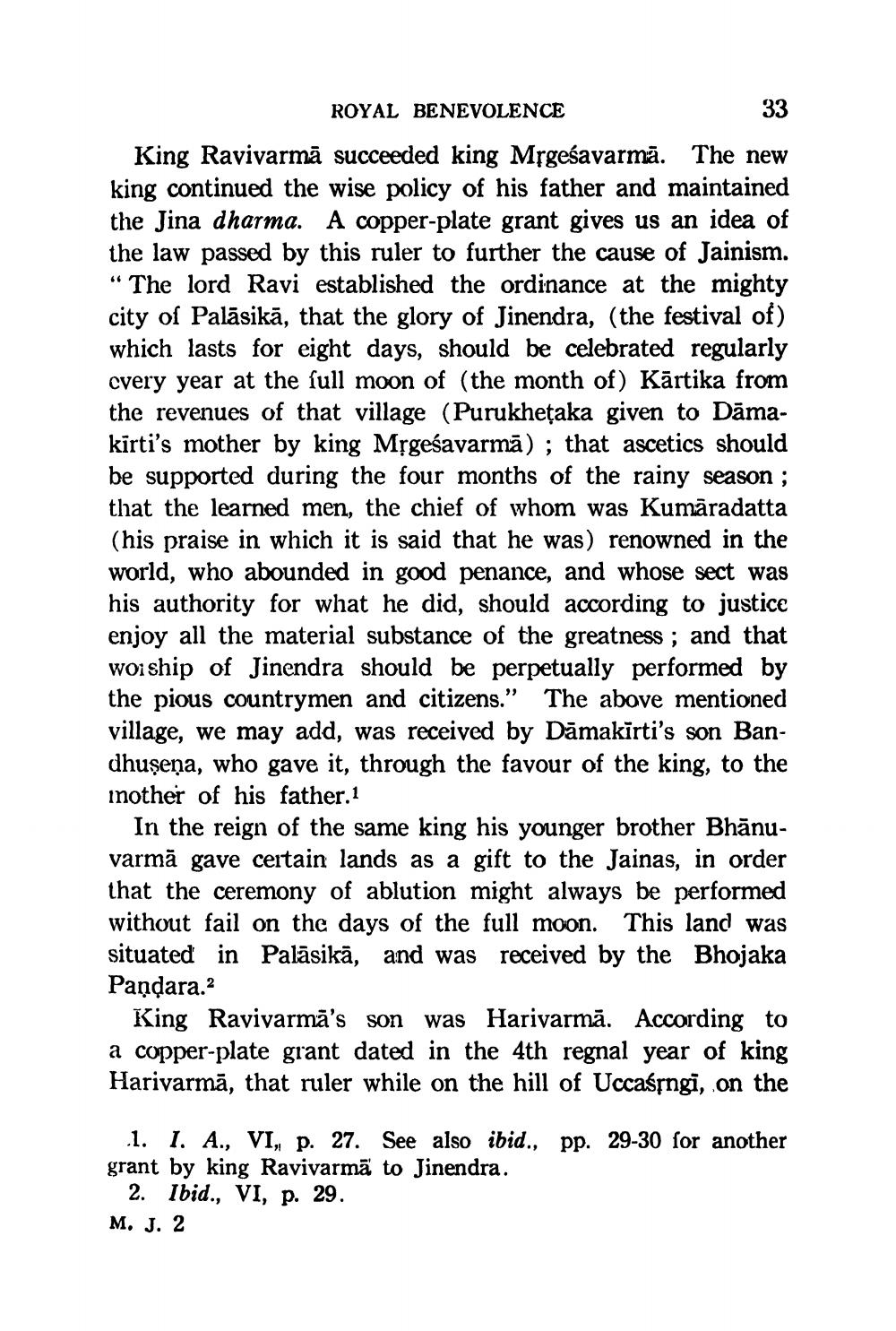________________
ROYAL BENEVOLENCE
33
King Ravivarmā succeeded king Mrgeśavarmā. The new king continued the wise policy of his father and maintained the Jina dharma. A copper-plate grant gives us an idea of the law passed by this ruler to further the cause of Jainism. "The lord Ravi established the ordinance at the mighty city of Palāsikā, that the glory of Jinendra, (the festival of) which lasts for eight days, should be celebrated regularly cvery year at the sull moon of (the month of) Kārtika from the revenues of that village (Purukhetaka given to Dāmakirti's mother by king Msgesavarmā) ; that ascetics should be supported during the four months of the rainy season ; that the learned men, the chief of whom was Kumaradatta (his praise in which it is said that he was) renowned in the world, who abounded in good penance, and whose sect was his authority for what he did, should according to justice enjoy all the material substance of the greatness; and that woi ship of Jinendra should be perpetually performed by the pious countrymen and citizens." The above mentioned village, we may add, was received by Dāmakīrti's son Bandhuşeņa, who gave it, through the favour of the king, to the inother of his father.1
In the reign of the same king his younger brother Bhānuvarmā gave certain lands as a gift to the Jainas, in order that the ceremony of ablution might always be performed without fail on the days of the full moon. This land was situated in Palāsikā, and was received by the Bhojaka Paņdara.2
King Ravivarmā's son was Harivarmă. According to a copper-plate grant dated in the 4th regnal year of king Harivarmā, that ruler while on the hill of Uccaśộngi, on the
.1. 1. A., VI, p. 27. See also ibid., pp. 29-30 for another grant by king Ravivarmā to Jinendra.
2. Ibid., VI, p. 29. M. J. 2




